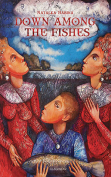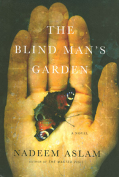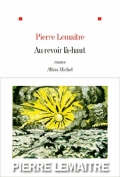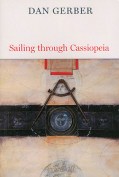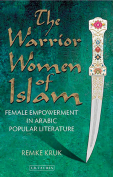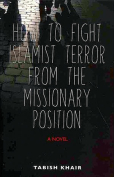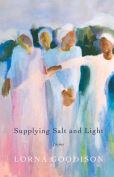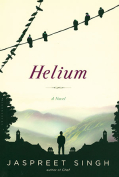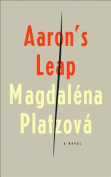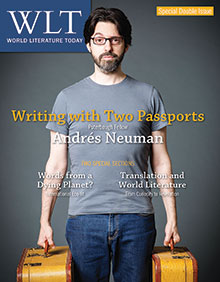The Blind Man’s Garden by Nadeem Aslam
New York. Knopf. 2013. ISBN 9780307961716
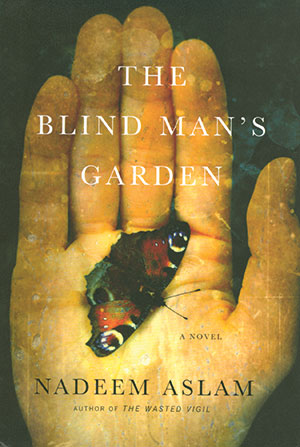 Moving among the sensuous gardens, Christian and Muslim schools, contested mosques and villages, and scarred battlefields of Pakistan and Afghanistan, where jihadists, warlords, the Taliban, Al Qaeda, and American forces vie for power in the months following 9/11, this family saga cum historical epic by Anglo-Pakistani writer Nadeem Aslam exposes the greed, corruption, and deep spiritual and ideological fissures within the region as well as the limits of American and, indeed, global vision.
Moving among the sensuous gardens, Christian and Muslim schools, contested mosques and villages, and scarred battlefields of Pakistan and Afghanistan, where jihadists, warlords, the Taliban, Al Qaeda, and American forces vie for power in the months following 9/11, this family saga cum historical epic by Anglo-Pakistani writer Nadeem Aslam exposes the greed, corruption, and deep spiritual and ideological fissures within the region as well as the limits of American and, indeed, global vision.
The tangled loves of the central family, with their varying shades of belief, frame the novel. A devout Muslim, Rohan is the blind man of the title—his vision first constrained by scripture, then destroyed by a warlord. Yet his wife, Sofia, makes “an entire life out of seeing.” Her art, portraying the human and natural worlds she holds sacred, violates Islamic law. Despite Rohan’s plots to return her to faith, Sofia dies a clear-eyed apostate. Meanwhile, Ardent Spirit, the school they founded, embodies Pakistan’s evolution. Its original motto, “Education is the basis of law and order,” morphs into “Islamic education . . . ,” becoming under Major Kyra, whose dead jihadist brother received the school from Rohan after Sofia’s death, “Islam is the purpose of life and death.”
Hoping to better Sofia’s lot in eternity, Rohan seeks to find and destroy her works, which leads him to the orphan Mikal, whom he “adopts.” Mikal, Jeo’s “blood brother,” and the impoverished, fatherless Naheed share a secret love they reluctantly sacrifice when Rohan arranges a marriage between Naheed and Jeo. This triangle resonates throughout the novel.
But the geopolitical forces spawned by 9/11 drive the plot: “History is the third parent.” Accompanying Rohan on a journey to Peshawar, Jeo and Mikal surreptitiously enter Afghanistan, in “the crosshairs of history,” to help wounded civilians. Foredoomed by Kyra, sold by warlords to the Taliban, attacked by anti-Taliban villagers, Jeo dies, and Mikal is taken into US custody. Released after extensive torture, he mistakenly kills two US soldiers and undertakes a grueling journey home, where he impregnates the widowed Naheed. Returning to Afghanistan to aid a family who sheltered him there, he disappears from the novel after giving himself up to the Americans. At home, meanwhile, Mikal’s brother, Basie, married to Jeo’s sister, Yasmina, dies at the Christian school where they both teach, in a bloody hostage incident orchestrated by Kyra. But Yasmina, like Naheed, is pregnant, and the birth of their sons signals hope.
Some aspects of this novel may distance readers. The achingly lyrical style that renders Rohan’s domain goes flat, graphic, almost Hollywoodish for fighting and torture scenes. Flashbacks and histories repeatedly interrupt the omniscient narrator’s present tense, so the novel can feel overmediated. And a reliance on coincidence seems programmatic. Nevertheless, Aslam credibly represents the internal and external forces engulfing Pakistan and Afghanistan as the American behemoth struggles to end jihad. The Blind Man’s Garden, finally, designates not only Rohan’s family but his beleaguered region and our global culture, wherein warring ideologies limit vision and perpetuate violence but which, properly tended, can yield beautiful fruit.
Michele Levy
North Carolina A&T University


